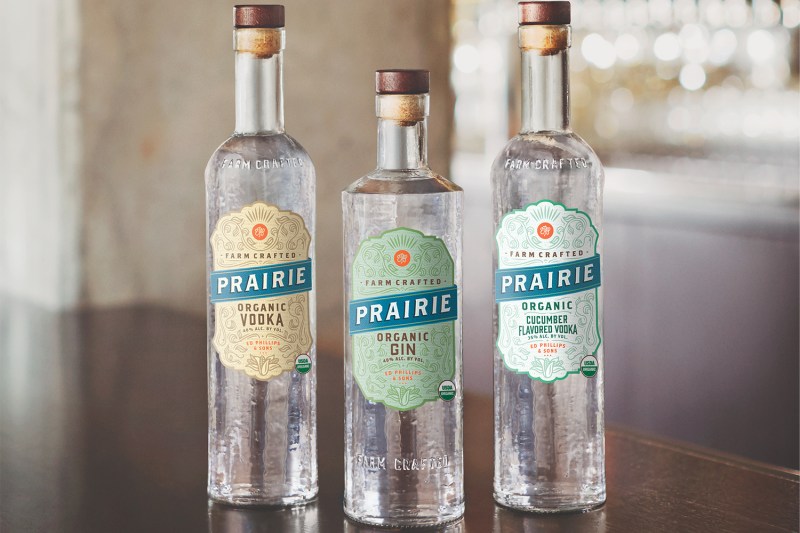
Look around your kitchen: odds are — even if the fridge is stocked with cheap beer and duck sauce packets — you’ve got an organic apple or some earth-friendly cereal somewhere. Even McD’s moved last year to get all the artificial junk out of their burger meats. So why aren’t you paying attention to the organic/sustainable status of your vodka and gin? It very likely could be you didn’t even know there were organic options out there.
“Access is a huge issue,” says Mike Duggan, CEO of Prairie Organic, a producer of 100% organic vodka, gin, and flavored vodka out of Minneapolis. (Sound familiar? We’ve talked about them before.) Though the brand has been on top of the organic booze game since about 2008, Duggan says they’ve decided to up the ante, getting proactive in growing the entire category.

“We started embedding ourselves into the organic base and really studying it,” says Duggan. “We found that about 5% of the food business is classified organic, and about 80% of all households buy at least something organic.” In some markets, like Seattle and San Francisco, the demand for organic produce is a primary driver for many shoppers.
When it comes to spirits, however, Duggan says that number is “closer to something like .001%. We asked ourselves, ‘What’s the challenge?’”
Prairie decided it would like to see the percentage of organic sales of all spirits approach 5% (all ships rise, better for the world and all that). To ensure that interested brands can actually come on board, though, first you gotta have someone out there growing the organic wheat, corn, barley, and sugar cane needed to make the booze. That takes time, education, and most of all, money.
“We decided we needed to help these farmers,” says Duggan. “So we’re dedicating 1% of our sales to work with the Rodale Institute.” If that name sounds familiar, it’s because the Pennsylvania-based institute has been promoting and teaching organic farming techniques since 1947.

“When you think about it, organic farming is the real ‘handcrafted’ product,” says Duggan. As part of the brand’s new Spirit of Change Fund, “we will help pay for 10 to 12 interns each year to go to the Rodale Institute,” through its Next Generation Scholarship Program.
Though 10 newly trained farmers might not seem like a lot, Duggan sees the potential for it to lead towards big numbers. If spirits followed the path of produce and packaged goods, and organic alcohol made up 5% of the industry, you’d be looking at 8 million acres of farmland converting to organic and 7.4 million pounds of pesticides not being used each year.

The ability to do good on a global level while sipping a tasty cocktail is the big incentive for buying organic and sustainable when it comes to booze. Duggan notes that for food, “the initial incentive was the ‘better for you’ angle. With spirits, organic vodka isn’t necessarily any better for you, but it’s better for all of us. If we were able to get the organic spirits category up to about 5% of the market, that would be 11 to 12 million cases annually, and we need the farmers in place to sustain that.” Currently, about 1% of all U.S. farms are classified organic, and 75% of all grains produced are used in food and beverage, according to Duggan “So it can have an impact.”

Of course, drinkers have to know that there are organic spirits out there to be had. Unlike fruit, or even wine, there’s no “organic” section of the liquor store. But Prairie hopes to change that as well. “We found that 60% of consumers surveyed would buy organic spirits if they knew that was an option.”
Duggan says the company is working with retailers and bartenders to find ways to promote the organic spirits categories as a whole, including a promotion titled “Make Mine Organic.”
“If you’re going to make a purchase and do a little good at the same time? Why wouldn’t you?”


